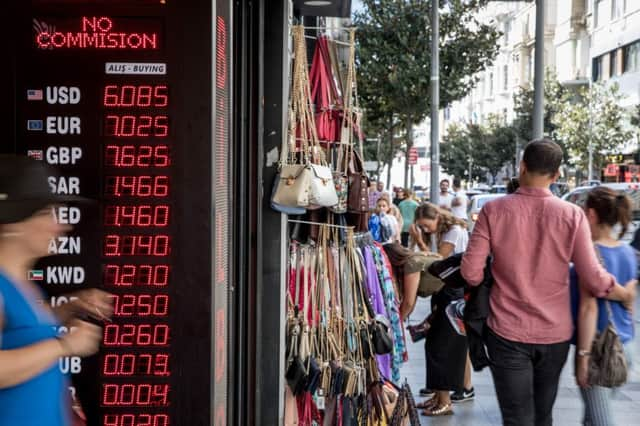Top tips to make your travel money go further


But exchange rates are pretty dire these days so don’t expect loads of euros or dollars for your pounds.
Here are a few tips to help you avoid getting caught out by a rubbish rate.
Advertisement
Hide AdAdvertisement
Hide Ad◆ It’s an urban myth that there’s one single exchange rate that fluctuates throughout the day. Actually, there’s a huge variation in the rates you’ll be offered for travel money, with the high street and the banks among the worst. Check out a free currency rate comparison online, MoneySavingExpert has one on their website.
◆ Don’t buy currency at the airport. You’re a captive audience there and the rates are often terrible. I died inside when I saw an airport exchange where the pound was slightly less than the euro but prepare yourself because that’s what you’ll get. It’s another urban myth that you get better rates when you buy abroad – I hear this one all the time, but it’s simply not the case and you’re stuck with little choice once you’re in a foreign country.
◆ Don’t use your card abroad if you can help it. Most banks and card providers will hit you with a 3 per cent charge for each overseas transaction you make. But the big con is they set the exchange rate you are charged, which means it’s almost impossible to know how much that $100 you took out has actually cost you until much later.
◆ The same goes for transfers abroad. Banks often have high fees for transferring money – and some people have lost huge amounts by not paying to fix an agreed rate of money on a big transfer. Always fix the rate if you’re sending a large sum of money, for example, if you’re buying a property abroad.
◆ There are some specialist cards for spending abroad, you can find them by shopping around online. Look for fees and exchange rate information before signing up. You might also want to consider a pre-paid currency card, available from most exchange service providers. This saves you carrying around lots of cash – but check how widely they’re accepted before signing up.
◆ Lots of people use services like Western Union or MoneyGram to send funds abroad. These services can be useful, but they’re also the favourite tools of fraudsters, so never pay for goods or services to strangers by making this kind of transfer. Once you’ve sent it, you won’t see it again.
◆ If you’re going away, don’t just have one source of money. If your cash gets pinched, then don’t be stranded because your cards were in the same wallet. Keep your money separate, have an emergency credit card, just in case there’s a serious problem and set a daily budget so you’re not carrying around a wad of notes to tempt pickpockets with.
Dodgy exchange rates have been a cash machine for banks and businesses for too long in my opinion. They can cost each of us thousands over our lifetime. So Resolver has teamed up with TransferWise to launch a campaign to fight unfair overseas fees. Find out how much you’ve been overcharged with the free app then we’ll help you make a complaint too.
James Walker is the founder of online complaint-resolution service Resolver.co.uk